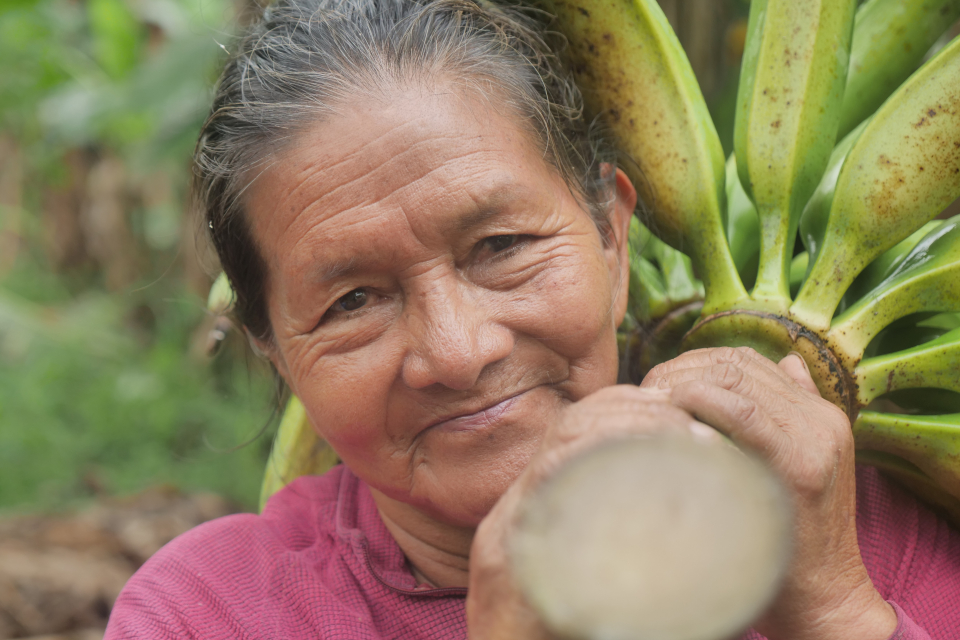This project was successfully funded by both Direct Participations and Steward Regenerative Capital.

Supporting Barnana's growth as a farm-to-shelf snack company rooted in upcycling and Indigenous supply chains in Ecuador.
Funded on 08/25/2025
Barnana is a better-for-you snack company transforming how the consumer packaged goods industry sources food. Since 2012, they’ve partnered directly with Indigenous and smallholder farmers in the Amazon rainforest of Ecuador to source organic bananas, plantains, and cassava, turning imperfect or overripe crops into upcycled snacks. Today, Barnana’s products are stocked in major retailers including Whole Foods, Sprouts, and Costco, with growing traction across international, private-label, and e-commerce channels.
With a vertically integrated supply chain and in-region processing facility, Barnana combines deep impact in farming communities with strong operational control. As they scale, the business continues to prove that commercial growth and ecological responsibility are not only compatible but mutually reinforcing.
The funding from Steward will refinance Barnana's outstanding balance on an existing line of credit, with the remaining loan proceeds of approximately $940k providing the business with the working capital required to execute on their sales and marketing strategy.
With a differentiated brand, strong consumer demand, and growing traction across multiple sales channels, Barnana is well-positioned to expand and succeed within the premium snack category.
Effective August 7th, 2025, the United States imposed a 15% tariff on all goods imported from Ecuador, Barnana’s primary sourcing country. While this development introduces potential cost pressure, the overall risk is considered moderate for several key reasons:
Barnana’s financial projections were stress tested by Steward to model a total of 25% tariffs charged on raw materials imported from Ecuador. Even under this scenario, Barnana’s Debt Service Coverage Ratio (DSCR) remained a reasonable 1.66x, demonstrating the company’s ability to meet its debt obligations despite increased cost pressures.
Ecological Stewardship:
Social Stewardship:
Economic Stewardship:
The team at Barnana is committed to building a sustainable and socially responsible business centered on the production of certified organic banana, plantain, and cassava products. These ingredients are ethically sourced from thousands of indigenous farms in the Amazonian region of Ecuador, forming the foundation of Barnana’s mission to protect ecosystems and uplift local communities.
Throughout the term of this loan, Barnana pledges to:
Barnana: How Three Friends Created A Multi-Million Dollar Business UpCycling Bananas - Forbes
Innovations In Upcycling And Use Of Food Waste Fuels Growth Of Barnana - Forbes
Barnana founder: ‘You’d be surprised how many things can be made out of banana’ - Food Business News
Additional press: https://barnana.com/pages/press
This loan will be made to Barnana, PBC, a Delaware Public Benefit Corporation that produces and sells upcycled organic banana and plantain-based snacks.
The $1,850,000 loan will be used to refinance the outstanding balance on an existing line of credit and to provide additional working capital to support the expansion of sales channels and the launch of new product lines.
This is a secured loan with a first lien on all business assets, including inventory (both finished foods and raw materials), equipment, account receivable, and other business assets. The borrower's interest rate is 9.5%, with a net interest rate of 9.0% paid to lenders after Steward's loan servicing fee is applied. The loan carries a 30-month term, with interest-only payments for the first twelve months, followed by fully amortizing payments of principal and interest for the remaining 18 months.
Get project announcements, farmer introductions, company updates, and more by subscribing to the Steward newsletter. Join our growing community of people who are making regenerative agriculture the foundation of our future.
Join a growing community of sustainably-minded lenders reaping the rewards from responsible farming